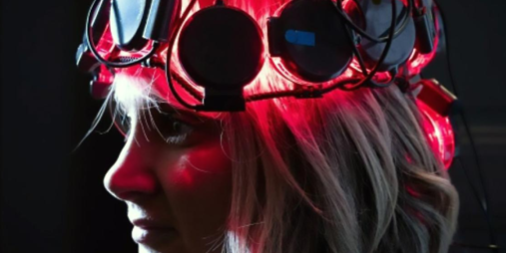By Paul McClure May 03, 2024
Studies show that by applying low-intensity light to the head and gut simultaneously, the effects of chronic stress is reduced.
Applying non-invasive, low-intensity light simultaneously to the head and abdomen, reduces the effects of chronic stress on the gut microbiome and the brain, according to a new study. The research adds to mounting evidence linking the two organs.
Photobiomodulation (PBM) is a non-invasive technique that uses low-intensity light from lasers or LEDs to produce a therapeutic effect. It’s been used to treat medical conditions as varied as heart disease and wounds. Transcranial PBM, using light on the head, has also shown promise in treating psychological disorders.
There’s been a raft of recent research into the connection between the gut and the brain, or the gut-brain axis. Studies have found a direct communication pathway between the two organs that’s been linked to depression, autism, and Parkinson’s disease.
In a new study, researchers from the University of Barcelona (UB), Spain, applied PBM simultaneously on the head and the gut to see whether manipulating the gut-brain axis had a positive effect on chronic stress.
“This is one of the most innovative scientific contributions of the study: to co-stimulate in a coordinated way the brain and the gut at the same time, i.e. the gut-brain axis,” said Albert Giralt from UB’s Institute of Neurosciences and the study’s co-corresponding author. “Today, the area of research into the gut-brain axis is generating great scientific interest and is a very promising field for the possible treatment of diseases of the nervous system.”
Chronic stress was induced in mice using stressors applied randomly each day for 28 days. The mice were treated with PBM for six minutes, Monday through Friday, for three weeks. The treatment either prevented or reduced cognitive symptoms caused by chronic stress. On a cellular level, brain inflammation was reduced following PBM treatment. And in terms of the gut microbiome, PBM therapy was found to correct levels of some bacteria that had been altered by stress.
Based on their findings, the researchers concluded that brain-gut PBM could have a synergistic beneficial effect on stress-induced changes to these organs.
The study was published in the Journal of Affective Disorders.
Source: University of Barcelona

